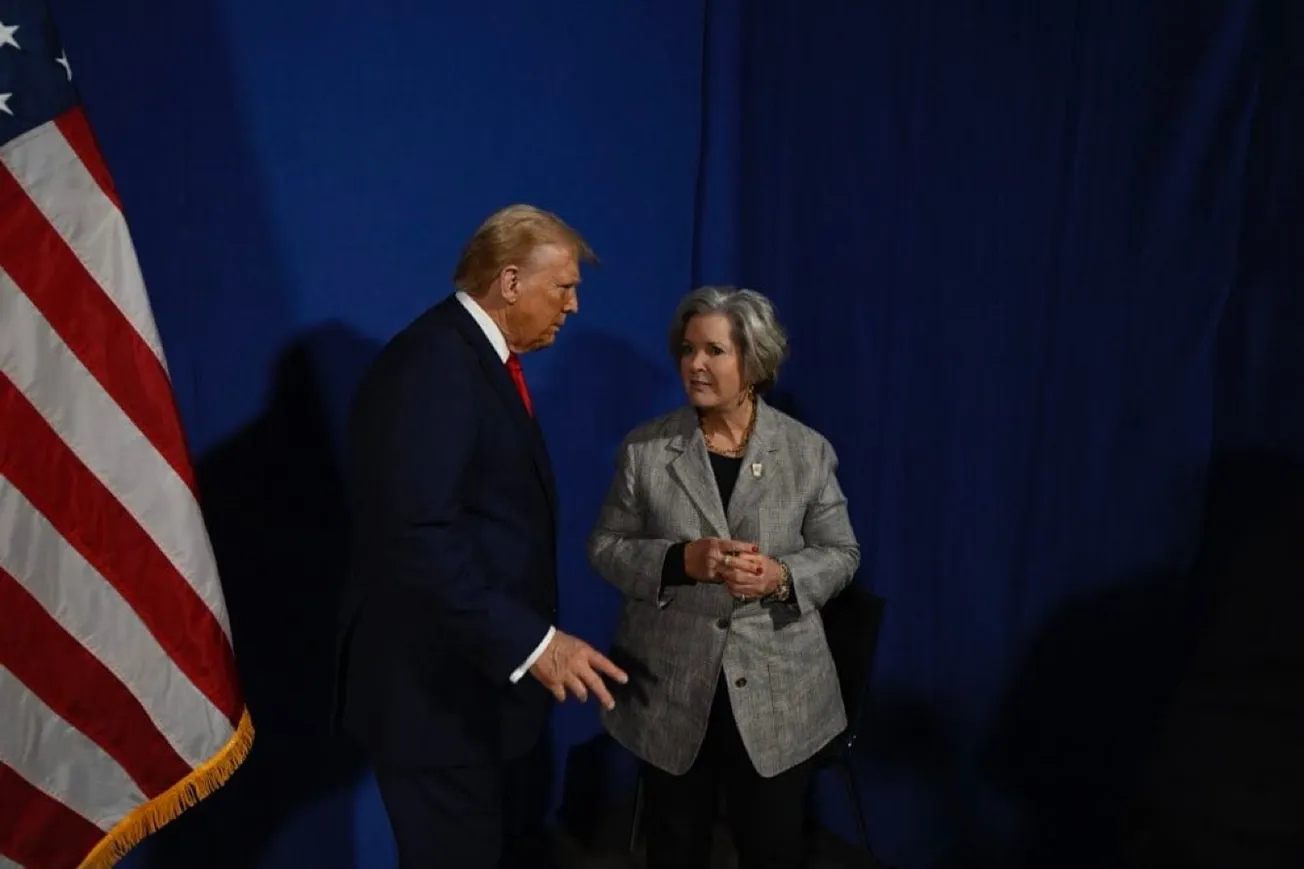President-elect Trump, Time magazine's Person of the Year, celebrated his dramatic turnaround - from mugshot to adorning one of America's cultural covers - by becoming only the second president to ring the opening bell at the New York Stock Exchange.
Appearing on CNBC, billionaire hedge fund manager Bill Ackman said of the second Trump administration: "We're stepping into, I would say, the most pro-growth, pro-business, pro-American administration I've perhaps seen in my adult lifetime."
Trump's cabinet appointments and public announcements have eschewed the three-letter monickers that summarized the Biden-Harris administration's disastrous legacy. That government took its eyes off what mattered to the American economy, thereby helping to tank it. Among other policy priorities, Biden-Harris sought to normalize two terms—DEI and WFH—and make fundamental changes to the way Americans work and live. Both practices are beginning to die as Americans realize that universalizing such untested and transformative solutions is nonsense.
DEI. We noted last month that when Biden took office in January 2021, everything was about Diversity, Equity, and Inclusion (DEI) and victimhood. The administration was addicted to trillions in borrowing and spending. They subsidized woke policies and enshrined them into the American psyche. Federal agencies had the money, so anything went.
Bloomberg Law reported this week on a crucial victory for corporate boards. In 2021, the Securities and Exchange Commission (SEC), the federal agency that governs the functioning of listed companies on stock exchanges, adopted a rule that forced Nasdaq-listed companies to have "diverse" boards - or, in typical Biden administration overreach, explain why they don't. It was an extraordinary instance of rulemaking aimed at changing American corporate behavior. This week, the US Court of Appeals for the Fifth Circuit ruled that the SEC lacked the authorityto regulate companies in this fashion.
Most of Biden's appointments were driven by checking off DEI boxes, with merit mattering little. Against each hire, the White House went out of its way to point to the box it had checked off: Lloyd Austin—the first Black secretary of defense; Deb Haaland—the first Native American cabinet secretary; Pete Buttigieg—the first openly gay person confirmed to a cabinet position; and so on.
The outcome of these appointments and associated DEI policies has been a catastrophe for the taxpayer. The DoD's emphasis on DEI resulted in the military falling short of its recruitment goals by over 41,000 soldiers. Margaret Brennan, the liberal CBS News anchor of Face the Nation, practically laughed at Transportation Secretary Pete Buttigieg's explanation on why the government could only show progress on 7 or 8 electric vehicle charging stations after spending $7.5 billion. Buttigieg is known to inject DEI justifications into practically everything he does.
WFH. During COVID-19, the administration pounced on yet another idea that had been the favorite of the Left—work-from-home (WFH)—as a way to help and protect families. Parents didn't have to get up in the morning to dress for work, didn't have to commute (clogging highways and burning fuel), and were spared parking fees at the destination if they worked from home. Families wouldn't have to pay for expensive daycare, as parents could juggle time between meetings and tend to child and elder care duties.
Liberal thinking has always been that if a popular idea takes hold, it should be made permanent immediately, ensuring its adoption is inevitable. For instance, when people were skeptical about the wisdom of nationalizing Obamacare, the Left ensured that the benefits of the Affordable Care Act would entrap Americans first, and the costs would hit later. With so much power invested in the Biden White House to regulate federal employees and contractors, the administration relaxed work rules so much that hundreds of thousands of government workers never went to the office. An explosive report from Sen. Joni Ernst, R-Iowa, who chairs the Senate DOGE Caucus, noted that fewer than one out of every ten federal employees (6%) work in an office full time, citing an April survey.
Corporations also implemented WFH during the scary days of COVID-19. As the pandemic began to ease, companies struggled with fundamental issues around productivity and teamwork—balanced against the convenience of letting employees work from home and the lower costs of leasing or owning real estate. Hybrid models began to emerge where companies demanded that employees show up for work at least a few days a week. In the last 12 months, the hybrid models began to evaporate as RTO (Return To Work) became standard across America.
As a cultural experiment, the Covid-era WFH model has resulted in significantly more drawbacks than benefits. Remote work can make it more challenging for employees to brainstorm, collaborate, and stay connected. Household responsibilities interfere with work duties. In the technology sector, enterprising employees may work two jobs simultaneously, using two computers. For dedicated employees, it is difficult to "switch off" as there is no clear separation between work and personal life.
There were external imbalances as well. With WFH gaining acceptance, thousands of families relocated from their primary work location to lower-cost communities. In North Texas, so many families migrated from high-tax and high-priced property communities in California, Illinois, New York, and New Jersey, that sleepy suburban communities in Dallas' real estate markets saw hyperinflation. Developers chased profits and overbuilt homes when the locals couldn't afford to buy homes as Bidenflation raged. The distortion has been painful in numerous communities, as thousands of these homes now sit in inventory with no takers.The WFH families have RTO'd (returned to office).
Trump's new efficiency leaders—Elon Musk and Vivek Ramaswamy, who will run DOGE—announced that they would eliminate WFH rules for federal employees and require everyone to go to the office. How did President Biden react? Last week, he locked in a WFH deal for over 42,000 Federal workers in the Social Security Administration.
January 20, 2025, can't arrive soon enough.
Rajkamal Rao is a columnist and a member of the tippinsights editorial board. He is an American entrepreneur and wrote the WorldView column for the Hindu BusinessLine, India's second-largest financial newspaper, on the economy, politics, immigration, foreign affairs, and sports.









